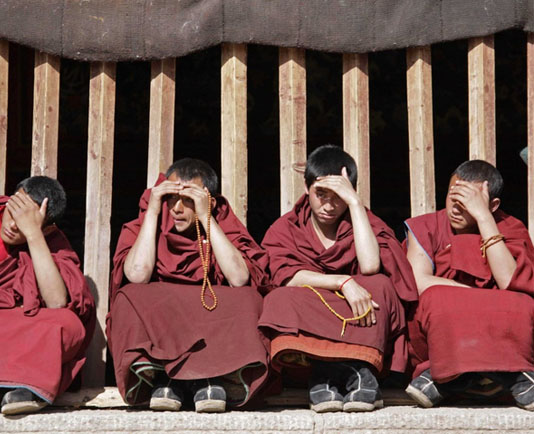
(TibetanReview.net, Sep10, 2017) – China’s revised religious regulation passed on Sep 7 and set to come into force on Feb 1 next year has been criticized as being meant to intensify control over religious activity and for presenting a further threat to Tibetan Buddhists. The regulation was passed by China’s State Council, or cabinet, and replaces the regulation passed by it in 2005.
The revised regulation should be assessed against the background of a series of laws that can be viewed as a systematic development of a security architecture, said Washington-based Tibet group International Campaign for Tibet, Sep 8. It listed those series of laws as including the 2015 Security Law, the NGO Law (which came into force in Jan 2017), the 2016 Counter Terrorism Law, and the Cyber Security Law (which came into force May 2017).
The group said these laws represented the Chinese Communist Party’s will to gain maximum control over every aspect of people’s lives.
It said that by incorporating ideas and notions of “state security”, “religious extremism” and “terrorism” to the law, the Chinese government has linked religious activity directly to politically charged crimes. It added that the revised regulation will thereby give scope for the penalization of almost any peaceful expression of Tibetan identity, acts of non-violent dissent, or criticism of ethnic or religious policies.
Pointing out that Chinese authorities had already been clamping down on normal Tibetan religious activities by maintaining that these were separatists or that they disrupted social order, the group said the revised regulation will lead to an even more repressive situation — particularly in Tibet — that violates international human rights standards.
Referring to the far-reaching scope of the restrictions stated in the revised regulation, the group called on the international community, United Nations bodies, governments, and parliaments to urge the Chinese government to “bring this unacceptable legislation into conformity with international human rights standards”.


